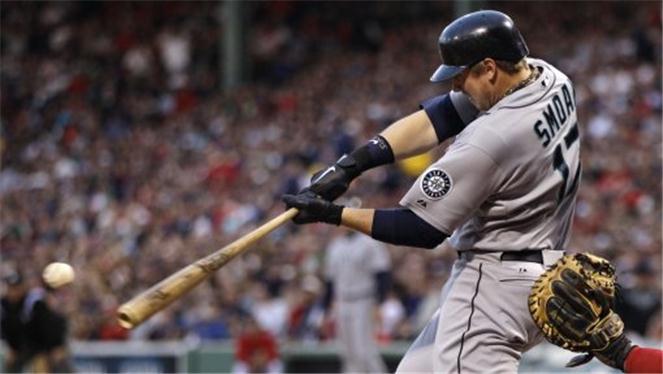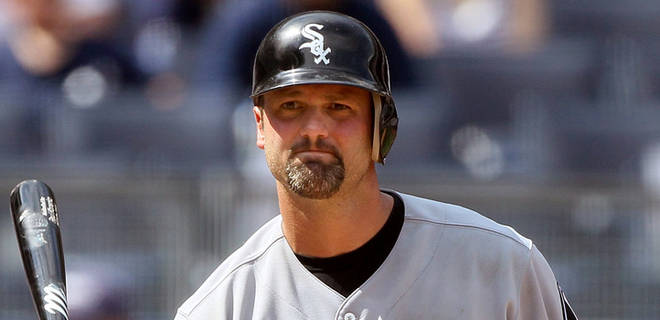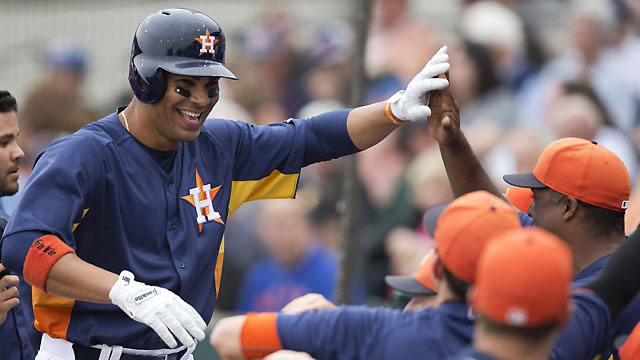 As is the case with this season’s market for catchers with the coming July trade deadline, the same can be said in regards to the market of first basemen.
As is the case with this season’s market for catchers with the coming July trade deadline, the same can be said in regards to the market of first basemen.
Although the market is comprised of solid names such as Kendrys Morales, Michael Morse, Paul Konerko, and Justin Morneau, the question that lingers is whether a definitive deal will be made involving the aforementioned players.
Teams with marketable players may take the conservative rout come the deadline, shying away from potential deals involving the likes of their talents at first. However, hungry teams who are in need of solid first basemen and are willing to toss in a gamble may be the deciding factor in July, as a contending club may represent the key variable in witnessing any of the players mentioned in this piece being moved in the coming weeks.
[divide]
Viable Big Names at First
The three first basemen who offer teams the best availability come the trade deadline are the Seattle Mariners’ Kendrys Morales, Michael Morse, and Justin Smoak. Although Smoak has served as the primary fixture at first, wherein Morales has held the designated hitter role and Morse has manned right field, all three are more than capable of playing the position, as each has had considerable experience playing the bag.
Both Morales and Morse have struggled to stay healthy this season and have not performed at levels on par with their respective offensive talents (Morse in currently on the DL with a quad strain), wherein they are currently in the last year of their contracts and will be free agents come the offseason.
With that being said, the Mariners have the decision to either offer the two sluggers qualifying offers or shop them around throughout the month of July to land needed offensive fire power for the stretch ahead.
Looking at all of the variables present, the best option for the Mariners would be in offering either Morales and/or Morse a qualifying offer for the 2014 season. Why such a bold move? Well for one thing, neither Morales nor Morse will garner much positive trade fodder as their respective trade values are currently low, as Morse is currently on the disabled list and Morales has been mediocre (in between spot injuries) at the plate, not to mention his inability to play first, as his health essentially requires him to be slotted at DH full-time.
Both players have solid offensive upside and potential when healthy, which is perhaps the reason why the Mariners may find it in their best interest to extend a qualifying offer to either (or both) player. Seattle has the funds to stomach a one-year deal worth between $13-14 million, as they need the offense and are more than willing to pay for it.
If Morales and Morse are able to regain full health, their value will be worth much more than any minor league prospect that they would most likely receive in a potential trade deadline deal. At this point, if the Mariners are unable to get quality pieces in return for both sluggers, they might as well hold on to their bats and patiently await the return of their health.
As for Smoak, the Seattle first baseman will be eligible for arbitration following this season, which may interest the Mariners in potentially moving him either at the deadline or come the offseason. Smoak is still young and has the power potential, wherein if a team is patient to develop that further, Smoak may garner a decent return for the Mariners as a result. However, with the lack of current viable options at first (especially with Morse on the DL), Smoak may be staying in Seattle for the stretch ahead.
[divide]
 Difficult Moves
Difficult Moves
The American League Central division has a pair of veteran first basemen who are thought to be available come the trade deadline, that of the Chicago White Sox’s Paul Konerko and the Minnesota Twins’ Justin Morneau.
Both are proven sluggers and offensive stalwarts for their respective ball clubs, however, over the course of the past two seasons (and namely this season), both have seen their production recede and since both are protected by no-trade options in their contracts, they will be tough movers come the deadline.
If Chicago were able to close a deal with a contending team, it is more than likely that Konerko would approve such a trade as the veteran slugger would most likely only approve a deal that would send him to a winning club. However, two things must happen in order for a potential deal involving Konerko to materialize.
First off, the interested club would have to pick up (or work out a deal) the $4.5 million remaining on his contract, and second, in order for the White Sox to get a solid return on Konerko, he would need to increase his trade value in the coming weeks. With a .253 batting average and 30 RBI in 66 games this season, Konerko will not garner the attention Chicago may need to work out a viable deal.
As for Morneau, the same situation is present for the Twins, as there is a little over $4.5 million left on his contract and the no-trade option will most likely be in effect with deals involving non-contending teams. However, a viable option for Morneau may involve the former-MVP wearing pinstripes.
The New York Yankees currently need a reliable, everyday bat at first in the absence of an injured Mark Teixeira. Morneau may very well be that impact bat they desperately need, wherein the Yankees could afford the gamble by picking up the rest of his contract and offering some prospects in return. While Morneau has not showcased the power numbers that he once did (three home runs in 70 games this season), the short porch at Yankee Stadium may help remedy that and potentially give him the confidence to harness his big bat.
While both Konerko and Morneau offer teams viable options at first, potential deals will depend on whether Chicago and/or Minnesota feel that a return on their veteran sluggers will be worth the effort, as both may need to increase their draft value in the coming month to garner valuable options for the White Sox and Twins.
[divide]
 Other Potential Options
Other Potential Options
A slew of other potential small market options are currently out in the open for consideration. For instance, the Houston Astros’ Carlos Pena and Chris Carter have split time at first this season (Carter has served as the primary first baseman, while Pena has taken the DH role) and offer a team a safe option to bolster their roster with a big bat, low batting average type of player.
Pena has a one-year, $2.9 million deal, while Carter is making $494,000, slightly more than the league minimum, which means an interested team should not need to worry about picking up a burdensome contract or future signing intentions.
While both don’t boast any spectacular offensive numbers this season, they have combined to hit 23 home runs this season, which may serve as the only bit of trade value for the Astros if teams were interested in either slugger.
At that, the Astros may be inclined to keep both, as Pena provides a veteran presence in the clubhouse and Carter can attack with the occasional long-ball.
The New York Mets have a pair of viable first base options in Ike Davis and Lucas Duda. Despite struggles on both ends (particularly in reference to Davis, who has spent time in Triple-A ball this season), the Mets should be open to potential offers. Duda has wielded an impressive bat at times this season, but has struggled in clutch situations, hitting a paltry .143 with runners in scoring position.
Duda possesses solid plate discipline and has developing power, however, if contending clubs looking to solidify their roster for the stretch ahead feel that Duda cannot improve in that respect, New York will not be getting viable offers come the deadline.
